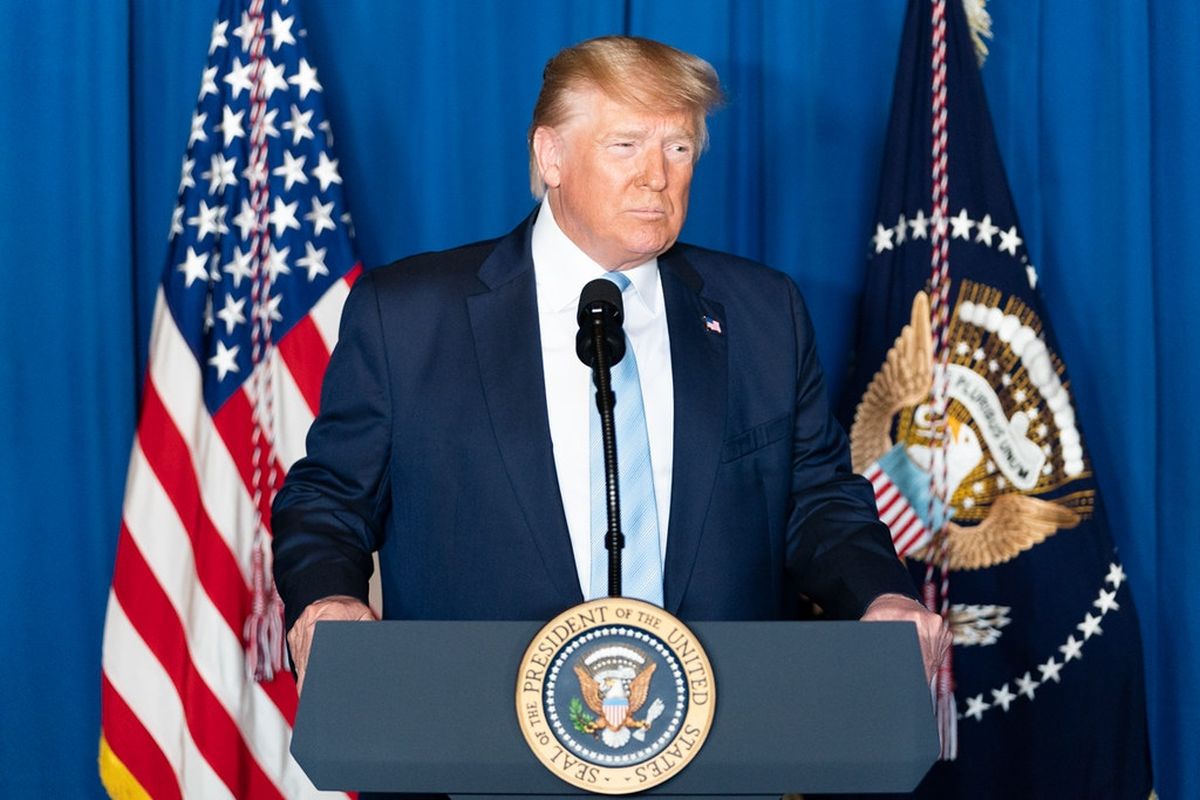The US Senate voted on Thursday to rein in President Donald Trump from attacking Iran, sharply rebuking his foreign policy despite a week earlier acquitting him in his impeachment trial.
Eight senators of Trump’s Republican Party, which enjoys a majority, bucked their leadership to join Democrats in a resolution that bars any military action against Iran without an explicit vote from Congress.
Advertisement
“The Senate just sent a clear shot across the bow — a bipartisan majority of senators don’t want the president waging war without congressional approval,” Democratic Senate leader Chuck Schumer said after the vote.
The Democratic-controlled House passed a separate, nonbinding war powers resolution last month.
Trump disputed that, arguing in two tweets Wednesday that a vote against Kaine’s proposal was important to national security and pointed to the January 3 drone strike that killed Iran’s top general, Qassem Soleimani.
In the early hours of Thursday, a vote on the war powers resolution could take place amid concerns that Trump could embark on open military conflict with Tehran without consulting Congress.
President Trump said, “We are doing very well with Iran and this is not the time to show weakness. Americans overwhelmingly support our attack on terrorist Soleimani”.
“If my hands were tied, Iran would have a field day. Sends a very bad signal. The Democrats are only doing this as an attempt to embarrass the Republican Party. Don’t let it happen!” the president further added.
In response to Trump’s action, Tehran launched missiles at two military bases in Iraq that house American troops last month.
The attack caused traumatic brain injuries in at least 64 US soldiers, according to the Pentagon.
Last year, Trump administration classified the Islamic Revolutionary Guards Corps as a terrorist organization, the first time the United States has done so to a government body.
In January the Democrat-controlled House of Representatives passed its own version of the law, after Trump’s order to kill Iranian commander Qasem Soleimani and retaliatory missile strikes by Tehran dramatically escalated tensions and raised fears of a devastating war between the two foes.
On Tuesday, Iranian leader Hassan Rouhani said while indicating to the US, “It is unbearable for the United States to accept the victory of a great nation and that a superpower has been driven out of this land”.
Last year, in May, President Trump withdrew the US from the 2015 nuclear pact between Tehran and six world powers and has since reimposed and expanded punishing sanctions as part of a stated campaign of “maximum pressure” against Iran.
Iranian officials have stressed that for any talks with the US, Washington should return to Tehran’s nuclear deal from which it withdrew in 2018 and implement its obligation under the accord.
Last week, the Senate voted to acquit President Trump on two articles of impeachment, marking the inevitable and historic end to a bitterly fought, divisive impeachment trial that will reverberate into the 2020 election and shape Trump’s presidential legacy.











